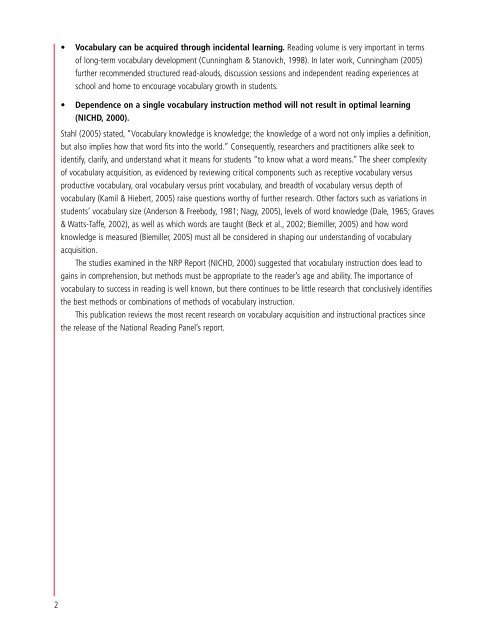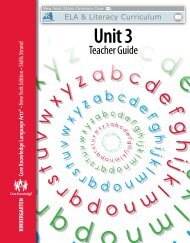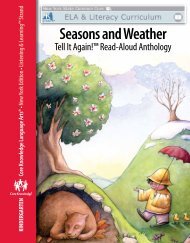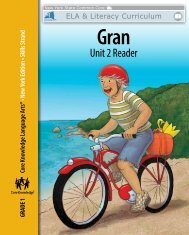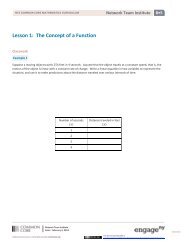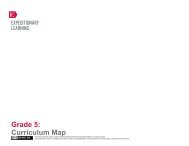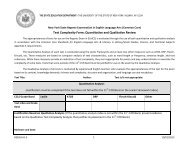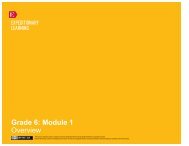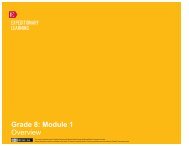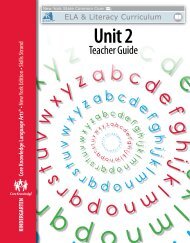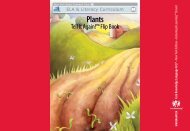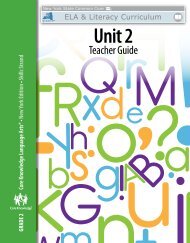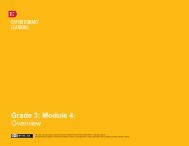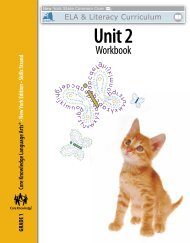A Review of the Current Research on Vocabulary Instruction - U.S. ...
A Review of the Current Research on Vocabulary Instruction - U.S. ...
A Review of the Current Research on Vocabulary Instruction - U.S. ...
You also want an ePaper? Increase the reach of your titles
YUMPU automatically turns print PDFs into web optimized ePapers that Google loves.
• <strong>Vocabulary</strong> can be acquired through incidental learning. Reading volume is very important in terms<br />
<str<strong>on</strong>g>of</str<strong>on</strong>g> l<strong>on</strong>g-term vocabulary development (Cunningham & Stanovich, 1998). In later work, Cunningham (2005)<br />
fur<str<strong>on</strong>g>the</str<strong>on</strong>g>r recommended structured read-alouds, discussi<strong>on</strong> sessi<strong>on</strong>s and independent reading experiences at<br />
school and home to encourage vocabulary growth in students.<br />
• Dependence <strong>on</strong> a single vocabulary instructi<strong>on</strong> method will not result in optimal learning<br />
(NICHD, 2000).<br />
Stahl (2005) stated, “<strong>Vocabulary</strong> knowledge is knowledge; <str<strong>on</strong>g>the</str<strong>on</strong>g> knowledge <str<strong>on</strong>g>of</str<strong>on</strong>g> a word not <strong>on</strong>ly implies a definiti<strong>on</strong>,<br />
but also implies how that word fits into <str<strong>on</strong>g>the</str<strong>on</strong>g> world.” C<strong>on</strong>sequently, researchers and practiti<strong>on</strong>ers alike seek to<br />
identify, clarify, and understand what it means for students “to know what a word means.” The sheer complexity<br />
<str<strong>on</strong>g>of</str<strong>on</strong>g> vocabulary acquisiti<strong>on</strong>, as evidenced by reviewing critical comp<strong>on</strong>ents such as receptive vocabulary versus<br />
productive vocabulary, oral vocabulary versus print vocabulary, and breadth <str<strong>on</strong>g>of</str<strong>on</strong>g> vocabulary versus depth <str<strong>on</strong>g>of</str<strong>on</strong>g><br />
vocabulary (Kamil & Hiebert, 2005) raise questi<strong>on</strong>s worthy <str<strong>on</strong>g>of</str<strong>on</strong>g> fur<str<strong>on</strong>g>the</str<strong>on</strong>g>r research. O<str<strong>on</strong>g>the</str<strong>on</strong>g>r factors such as variati<strong>on</strong>s in<br />
students’ vocabulary size (Anders<strong>on</strong> & Freebody, 1981; Nagy, 2005), levels <str<strong>on</strong>g>of</str<strong>on</strong>g> word knowledge (Dale, 1965; Graves<br />
& Watts-Taffe, 2002), as well as which words are taught (Beck et al., 2002; Biemiller, 2005) and how word<br />
knowledge is measured (Biemiller, 2005) must all be c<strong>on</strong>sidered in shaping our understanding <str<strong>on</strong>g>of</str<strong>on</strong>g> vocabulary<br />
acquisiti<strong>on</strong>.<br />
The studies examined in <str<strong>on</strong>g>the</str<strong>on</strong>g> NRP Report (NICHD, 2000) suggested that vocabulary instructi<strong>on</strong> does lead to<br />
gains in comprehensi<strong>on</strong>, but methods must be appropriate to <str<strong>on</strong>g>the</str<strong>on</strong>g> reader’s age and ability. The importance <str<strong>on</strong>g>of</str<strong>on</strong>g><br />
vocabulary to success in reading is well known, but <str<strong>on</strong>g>the</str<strong>on</strong>g>re c<strong>on</strong>tinues to be little research that c<strong>on</strong>clusively identifies<br />
<str<strong>on</strong>g>the</str<strong>on</strong>g> best methods or combinati<strong>on</strong>s <str<strong>on</strong>g>of</str<strong>on</strong>g> methods <str<strong>on</strong>g>of</str<strong>on</strong>g> vocabulary instructi<strong>on</strong>.<br />
This publicati<strong>on</strong> reviews <str<strong>on</strong>g>the</str<strong>on</strong>g> most recent research <strong>on</strong> vocabulary acquisiti<strong>on</strong> and instructi<strong>on</strong>al practices since<br />
<str<strong>on</strong>g>the</str<strong>on</strong>g> release <str<strong>on</strong>g>of</str<strong>on</strong>g> <str<strong>on</strong>g>the</str<strong>on</strong>g> Nati<strong>on</strong>al Reading Panel’s report.<br />
2


